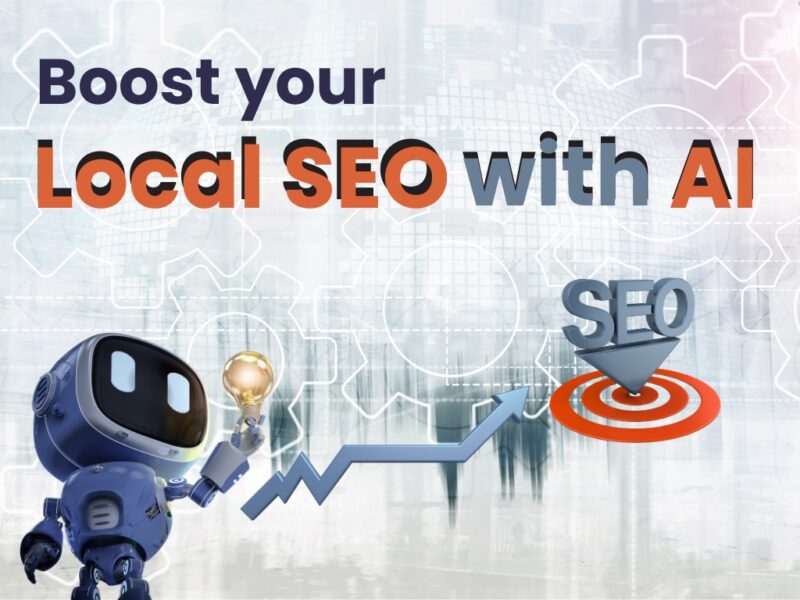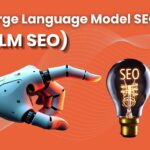Local SEO has always been the backbone of online visibility for small and medium-sized businesses. But in 2025, artificial intelligence (AI) is transforming how customers discover and engage with local brands. Whether it’s chatbots answering “best restaurants near me” or AI tools shaping Google Business Profile listings, businesses that fail to integrate AI into their local SEO strategies risk being left behind.
In this guide, we’ll explore how AI is reshaping local SEO and highlight four powerful AI-driven tactics that deliver measurable results in 2025.
Why Local SEO Matters More in 2025
Local searches remain one of the most profitable opportunities for businesses. According to recent studies:
- 76% of people who search for something nearby on their smartphones visit a related business within 24 hours.
- 28% of local searches result in a purchase.
- AI-driven search assistants like ChatGPT, Bard, and Perplexity are being used by millions daily for location-based recommendations.
This shows that local visibility isn’t optional—it’s essential. And with AI increasingly influencing how search engines and assistants interpret data, businesses must adapt their local SEO strategies.
How AI Is Changing Local Search Behavior
From April 2024 to March 2025, AI chatbots recorded over 55 billion visits—an 80% increase year-over-year. Instead of typing queries into Google, users now ask AI-powered assistants for fast, conversational, and personalized recommendations.
Example:
- Old way: Typing “best plumber near me” into Google.
- New way: Asking ChatGPT, “Who’s the most trusted emergency plumber near Brooklyn with 24/7 service?”
For businesses, this means:
- Visibility depends on accurate, structured data.
- Authenticity and personalization matter more than keyword stuffing.
- AI-powered tools can help brands adapt faster than ever.
4 AI-Driven Tactics to Boost Local SEO
1. Target High-Intent Local Searches
High-intent, long-tail keywords drive the most qualified leads. In fact, 92% of search queries are long-tail keywords, and AI tools are essential for identifying them.
How AI Helps:
- AI-powered keyword research tools (e.g., Semrush AI, Ahrefs, Surfer AI) uncover hidden location-based search terms.
These tools categorize keywords by intent:
- Transactional: “24-hour emergency auto repair near Michigan Avenue.”
- Informational: “How much does brake repair cost in Brooklyn?”
- Navigational: “Joe’s Auto Repair Brooklyn reviews.”
Pro Tip:
Use AI to perform a gap analysis between your competitors and your own content. Identify what local queries they’re ranking for and fill those gaps with your optimized content.
2. Strengthen Your Google Business Profile with AI
Your Google Business Profile (GBP) remains a critical local SEO ranking factor. However, most businesses neglect it after setup. AI can transform GBP into a traffic and trust magnet.
AI Applications for GBP:
- AI-generated business descriptions → Clear, keyword-optimized, customer-focused.
- AI-generated posts → Weekly updates aligned with local events, promotions, or FAQs.
- Review management → AI tools like Podium or Birdeye analyze sentiment and auto-generate replies that match your brand voice.
Why It Matters:
- 88% of consumers say they trust businesses that respond to all reviews.
- AI tools help you manage reputation in real-time without being overwhelmed.
A strong, AI-enhanced GBP = higher local visibility, trust, and customer engagement.
3. Streamline Citation Management with AI
Local citations (directory listings with your Name, Address, and Phone number – NAP) are the foundation of local SEO. But keeping them consistent across hundreds of directories is nearly impossible without automation.
How AI Improves Citation Management:
- Smart Auditing: AI detects inconsistent NAP data across directories and flags them.
- Prioritization: AI tools identify which directories (Google Maps, Yelp, TripAdvisor, industry-specific sites) actually matter for your niche.
- Predictive Analysis: AI predicts future inconsistencies before they harm rankings.
Benefits:
- Improved ranking trust signals for Google.
- Time savings—no more manual updates.
- Discovery of new citation opportunities based on authority and relevance.
| Traditional Citation Management |
AI-Driven Citation Management |
|
| Manual updates across platforms |
Automated syncing with predictive analysis | |
| Treats all citations equally |
Prioritizes high-authority, high-impact listings | |
| Time-consuming & error-prone |
Smart, efficient, and scalable |
4. Scale Hyperlocal Content with AI Personalization
Generic blog posts don’t cut it anymore. In 2025, hyperlocal, personalized content drives engagement and rankings.
How AI Helps:
- Content ideation: AI tools suggest blog topics tailored to local audiences, such as:
- “Top 5 Mistakes Brooklyn Homeowners Make When Choosing a Roofer”
- “Spring Plumbing Checklist for Chicago Residents”
- Hyperlocal personalization: AI analyzes community data to add neighborhood landmarks, cultural references, and seasonal trends.
- Dynamic customization: AI adapts messaging based on user persona, location, or even local weather.
Example Hyperlocal Strategies:
- Write community spotlights (e.g., feature local cafes, events, or small businesses).
- Reference regional terms/landmarks in blog content.
- Use AI to recommend localized FAQs based on real customer searches.
This makes your content feel authentic, while also signaling local relevance to search engines.
Why AI-Powered Local SEO Is the Future
AI doesn’t replace SEO fundamentals—it amplifies them.
With AI, local businesses can:
- Save time with automation.
- Target the right keywords instead of wasting resources.
- Deliver personalized experiences that boost customer loyalty.
- Maintain accurate online data, strengthening trust with both customers and Google.
Quick Recap: AI-Driven Local SEO Checklist
- Use AI keyword tools to target high-intent local searches.
- Optimize and automate your Google Business Profile with AI-generated content & review responses.
- Maintain NAP consistency with AI-powered citation management tools.
- Scale hyperlocal content with personalization and cultural references.
Conclusion
In 2025, AI is no longer optional for local SEO—it’s a competitive necessity. Businesses that embrace AI-driven tactics can achieve stronger rankings, more qualified leads, and deeper community connections.
At Oshin Web Solution, we specialize in blending AI with proven SEO strategies to deliver measurable growth for businesses. By adopting these AI-powered local SEO tactics, your brand won’t just stay visible—you’ll become the top choice when nearby customers are ready to buy.
Follow Us: Facebook, Twitter, LinkedIn, Instagram & YouTube.
FAQs
Q1. What is Local SEO and why is it important in 2025?
Local SEO is the process of optimizing your online presence to attract customers from nearby searches. In 2025, with more voice searches and AI-driven search algorithms, Local SEO helps small businesses appear in “near me” results and connect with local audiences faster.
Q2. How is AI changing Local SEO strategies?
AI tools analyze search behavior, predict customer intent, and automate content optimization. From personalized recommendations to smart keyword targeting, AI ensures your business ranks higher in local searches with less guesswork.
Q3. What are some effective AI-driven tactics for Local SEO?
- AI-powered keyword research for location-based terms
- Automating Google Business Profile updates
- Using AI chatbots for customer engagement
- AI tools for reputation management and review responses
Q4. How can small businesses use AI for Local SEO on a budget?
Small businesses can leverage free or affordable AI tools like ChatGPT for content ideas, SurferSEO for optimization, and Google’s AI-powered insights in Google Business Profile. Many tools now offer cost-effective plans for local businesses.
Q5. Does voice search impact Local SEO in 2025?
Yes! Voice search is booming, and most voice queries are local. Optimizing content for conversational, question-based keywords (like “Where’s the best pizza near me?”) ensures your business shows up in voice search results.
Q6. What are the biggest Local SEO ranking factors in 2025?
- Google Business Profile optimization
- Positive online reviews & reputation management
- Mobile-friendly website design
- Local backlinks and citations
- AI-driven personalization and content relevance
Q7. How often should I update my Local SEO strategy?
At least every 3–6 months. Since Google’s AI algorithms evolve constantly, businesses that adapt quickly with updated content, fresh reviews, and AI-optimized strategies will maintain higher rankings.

Sandeep Kumar is the founder of Oshin Web Solution and a seasoned digital marketing expert with over 12 years of experience. He specializes in SEO, paid marketing, and online brand growth, helping businesses achieve measurable results in the digital space. When not strategizing campaigns, Sandeep enjoys exploring the latest marketing trends and sharing his insights with the community.






